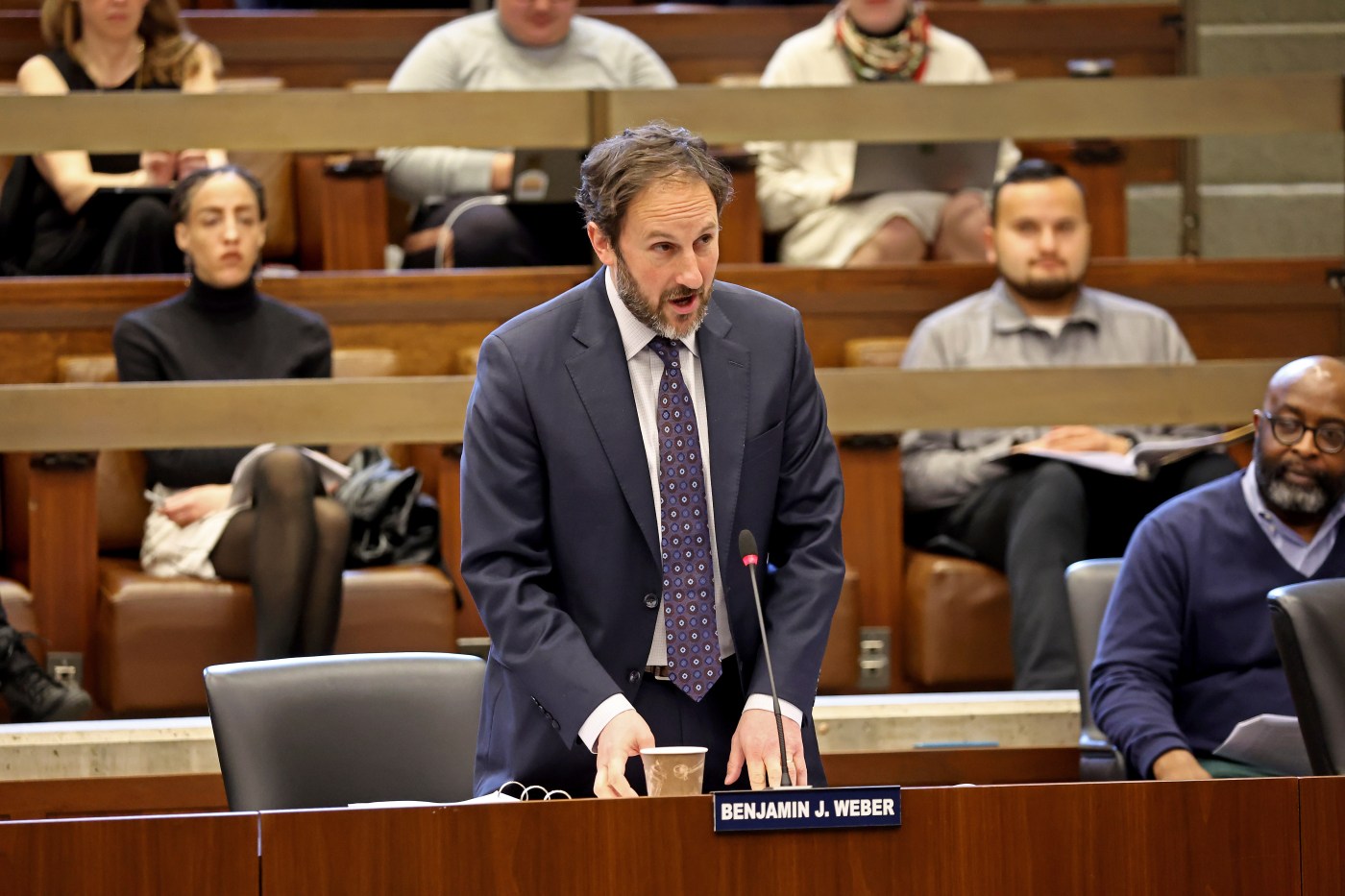
Boston City Council presses Retirement Board to reverse course on pension increase rejection
The Boston City Council passed a measure urging the Retirement Board to reverse a vote it took last week to reject a cost-of-living-adjustment base increase for municipal retirees, while citing concerns over inflation and housing affordability.
The resolution, approved via a 12-0 vote by the City Council, calls for the Retirement Board to approve its first increase to the COLA base for Boston retirees since 2021, when it was raised to $15,000.
The Council is calling for the base to be hiked to $18,000, an amount retirees are said to have been seeking for the past two years. The Retirement Board rejected an increase to the COLA base at its Sept. 17 meeting, according to a resolution put forward by Councilors Benjamin Weber, Henry Santana and Ed Flynn.
“Municipal retirees in the Boston Retirement System paid into the system for years and dedicated their whole lives of service to our city, and are now living on a fixed income,” Weber said Wednesday. “We owe it to the people who made our city work to advocate for them so they can receive the benefits they deserve and are entitled to.”
The body’s resolution notes that the COLA base increase is needed to keep pace with the rising cost of living in Boston, which increased by 2.5% in 2024 over the prior year, “with the largest increases found in transportation, food and housing.”
Only three COLA base increases have been granted in Boston since 2010, when retirement boards in Massachusetts were granted the authority to make that change. Prior increases added about $90 per year for each retiree, Weber said.
“These retirees are on fixed incomes, and we owe it to them to ensure they can continue living in the city they helped build and age within it,” Santana said.
The Retirement Board’s vote came a day after the Boston Municipal Research Bureau, a watchdog group that keeps an eye on City Hall finances, published a report recommending that the board reject an increase to the COLA base.
The report notes the Retirement Board’s action this past June to approve a 3% COLA increase, which equates to a 3% increase on the first $15,000, or the current COLA base, of a retiree’s pension.
The board last week, per the Research Bureau report, had three options, which were to raise the COLA base to $16,000, $17,000, or $18,000.
“Any increase in the COLA base would increase Boston’s unfunded pension liability,” the report states.
The Research Bureau recommended against a base increase, to ensure that the city reaches its full pension liability funding target by June 30, 2028, which the reports states would reduce the city’s pension cost by roughly 59% in fiscal year 2028.
“According to the actuarial report, any adjustment to the COLA base could increase the unfunded liability by $30.3 million to $89.9 million,” the watchdog group wrote. “No actions should be taken that would further raise Boston’s unfunded pension liability.”
Related Articles
Boston City Council to discuss alternative to Mayor Wu’s plan to hike business taxes
Senate President Karen Spilka, Mayor Michelle Wu plan to discuss tax proposal, sources say
Office pace: Wu encouraged by return of workers to Boston workplaces
Lawsuit names Boston, MBTA employees in ‘wild case’ where kin allegedly swindled Dorchester man out of $1M home
City Councilors bring Boston school bus issues before state education board
Boston’s unfunded pension liability now stands at $1.26 billion, which is $309 million more than forecasted in the last actuarial valuation from Jan. 1, 2022, the Research Bureau wrote.
“As the city approaches full funding, it becomes increasingly challenging to absorb any expansion of the liability,” the group’s report said. “To address retirees’ legitimate concerns, the (Boston Retirement Board) could consider an increase in the COLA base once full funding is achieved.”
City councilors insisted, however, that an increase to the COLA base can’t wait.
“They’ve been there for the residents of Boston during difficult times in this city, and now they’re asking for a little bit of support from us, from this body, so they can buy a can of soup or buy a cup of coffee,” Flynn said. “Let’s, during these difficult economic times, ensure that our city retirees are respected because they’ve earned it.”
A request for information on the breakdown and content of the Retirement Board’s vote was not returned by the board’s executive director, Timothy Smyth.


